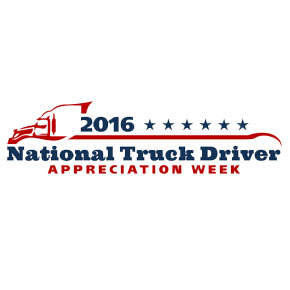
by logisticsplus | Sep 13, 2016 | News
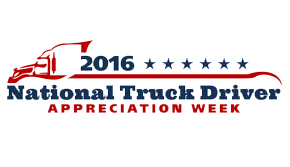 This week is National Truck Driver Appreciation Week (NTDAW) – a time when America honors all professional truck drivers for their hard work and commitment in tackling one of our economy’s most demanding and important jobs.
This week is National Truck Driver Appreciation Week (NTDAW) – a time when America honors all professional truck drivers for their hard work and commitment in tackling one of our economy’s most demanding and important jobs.
Logistics Plus was founded by a truck driver; and so our 400+ employees are especially proud to extend our collective thanks to all truck drivers across America (and around the world, for that matter). These 3.5 million professional men and women not only deliver our goods safely, securely and on time, they also keep our highways safe.
In honor of NTDAW, here are some interesting facts about truck drivers and the trucking industry published by the American Trucking Association (ATA):
- Professional truck drivers drove over 279 billion miles in 2014, more than double 25 years ago. Those miles accounted for 14.2% of all motor vehicle miles and 29.8% of all truck miles.
- The trucking industry paid $39.9 billion in federal and state highway taxes in 2014, and represented 12.1 percent of vehicles on the road. The trucking industry paid $18.4 billion in federal highway-user taxes and $21.6 billion in state highway-user taxes in 2014.
- The trucking industry consumed 54.3 billion gallons of diesel fuel and gasoline in 2015. Based on consumption and price, ATA reported that motor carriers spent $142.9 billion in 2015.
- The federal fuel tax for diesel in 2015 is 24.4 cents per gallon; the average state tax for diesel fuel was 27.4 cents per gallon.
- There are 3.63 million class 8 trucks on the road in the United States and 11.7 million commercial trailers were registered in 2015.
- There are 3.5 million truck drivers in the United States. Total industry employment is 7.3 million or one out of every 16 people working in the United States.
- There are 586,014 for-hire carriers and 747,791 private carriers in the United States; 97.3 percent of them have fewer than 20 trucks and 90.8 are operating six trucks or less.
- In 2015, the trucking industry hauled 10.49 billion tons of freight, or 70.1 percent of total U.S. freight tonnage. Rail was the next busiest mode, moving 13.8 percent of the nation’s freight tonnage.
- In 2015, the trucking industry was an astounding $726.48 billion industry, representing 81.5 percent of the nation’s freight bill.
- More than 80 percent of U.S. communities depend solely on trucking for delivery of their goods and commodities.
- A new truck produces one-tenth the fine particulate emissions and smog-forming NOx emissions as a similar truck manufactured just seven years ago.
- Fine particulate emissions from on-road diesel trucks have been cut by more than half over the past decade.

by logisticsplus | Sep 9, 2016 | News
 Many recent articles and white papers have been discussing the emerging trend of nearshoring in Mexico. Thanks to rising costs in China, delays and disruptions to transpacific shipping routes, and logjams at United States western seaports, many manufacturers are looking closer to home for their sourcing needs. For many of these companies, Mexico – the third largest U.S. trade partner – has become a cost-effective alternative.
Many recent articles and white papers have been discussing the emerging trend of nearshoring in Mexico. Thanks to rising costs in China, delays and disruptions to transpacific shipping routes, and logjams at United States western seaports, many manufacturers are looking closer to home for their sourcing needs. For many of these companies, Mexico – the third largest U.S. trade partner – has become a cost-effective alternative.
According to a recent manufacturing study published by a reputable global research firm, some 46 percent of respondents have already engaged in a plan to nearshore within the next five years. Of those companies, 63 percent say Mexico is the leading candidate, citing lower transportation costs and improved speed-to-market. As a result of increasing demand, truck and rail traffic between the U.S. and Mexico set record highs for volume and freight value, in 2014 according to the U.S. Bureau of Transportation Statistics.
Being closer to the U.S. market by nearshoring in Mexico provides companies with a number of benefits, including:
- Proximity. A shipper can move freight from Mexico to the U.S. by ocean in 48 hours, and by truck within a few days or less. By contrast, shipping a container from Asia to the U.S. could take up to six weeks to deliver. Another consideration is that operating in similar time zones creates opportunities to strengthen collaboration between U.S. companies and their Mexico counterparts.
- Trucks and Rails. More than 1.37 million trucks crossed the U.S./Mexico border in the first quarter of 2015, up almost 3 percent from the prior year. Also, shippers now have more reliable and seamless intermodal service options between the U.S. and Mexico, which can offer a 15- to 20-percent cost advantage over trucks alone.
- Labor. Unlike a decade ago when Mexican labor costs were reportedly 60 percent higher than those in China, today they’re on par or lower. Mexican companies have also transitioned from simple assemblers of products to exceedingly sophisticated manufacturers.
With an abundant labor pool, lower wages, low energy costs, and simplified truck and rail transport, including intermodal operations, Mexico has emerged as a nearshore alternative to overseas manufacturing. Companies unfamiliar how best to optimize their U.S./Mexico supply chains through the use of effective cross-border transportation and warehousing can contact the experts at Logistics Plus for help. We have been managing logistics between the U.S. and Mexico for nearly 20 years, and we recently celebrated our 10th anniversary for operations in Mexico.
The benefits of working with the Logistics Plus cross-border logistics team include:
- Bilingual staff members on both sides of the border
- Proven experience and success on both sides of the border
- Competitive rates and contracts for cross-border transportation
- Full shipment visibility across the entire supply chain
- Customs clearance, global trade compliance, and NAFTA expertise
- Warehousing availability with Foreign Trade Zone (FTZ) activation
Please visit www.logisticsplus.com/Mexico to learn more or contact us using the button shown below.

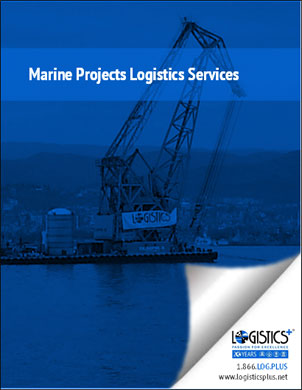
by logisticsplus | Sep 8, 2016 | News
 The Logistics Plus Marine Projects Logistics team provides complete solutions for the entire Maritime and Shipyard Industry.
The Logistics Plus Marine Projects Logistics team provides complete solutions for the entire Maritime and Shipyard Industry.
A couple of our recent logistics projects include:
- Transporting a 6.5 meter high RRM vertical ruel tank from Norway to Istanbul
- Moving 30 meters long, 24 meters wide 17 meters high, and each 1,014 metric tons, 4 x NH3 vessel gas tanks from South Korea to the USA
The Logistics Plus Marine Projects Logistics team will plan, manage and undertake special logistics projects of any scale from start to finish. However challenging the geography, however complex the lift, our Marine Projects Logistics team works closely with our engineering and contractor customers to ensure that every project is planned, delivered and completed on time and to exact specifications.
The many services we provide include:
- Tug, Pilot, Mooring, Crew, Dredger Motor Barge Transportation
- Yacht, Catamaran, Ferry Transportation
- Barge / Floating Crane Operations
- Cargo inspections including loading and discharging
- Transport of Spare Parts
- Customs Brokerage
- Vessel agency and husbandry
Feel free to click the image above to download a PDF copy of our Marine Projects Logistics brochure. To inquire about our services for your next cargo project, please email us at [email protected] or click the button below.

Are you going to the 2016 Breakbulk Americas Conference? Be sure to stop by and visit us at booth 451!
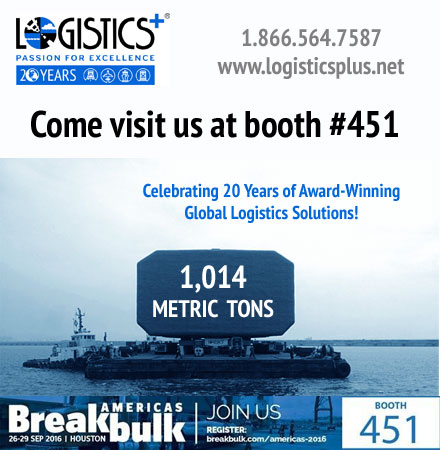
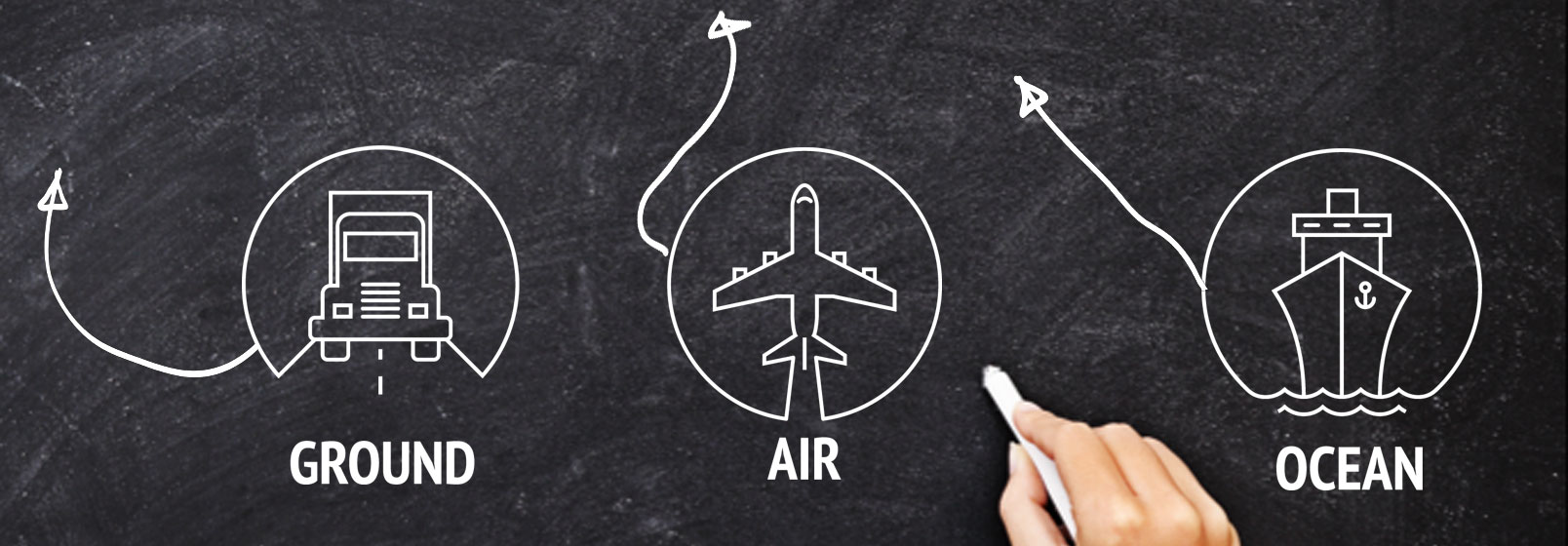
by logisticsplus | Sep 7, 2016 | News
 Choosing the right mode for freight transportation is a very important part of any logistics playbook. You will ship your product by either ground, air, ocean or rail transport. The factors that come into play in mode selection include the following:
Choosing the right mode for freight transportation is a very important part of any logistics playbook. You will ship your product by either ground, air, ocean or rail transport. The factors that come into play in mode selection include the following:
- Availability – is equipment and capacity readily available?
- Speed – is the transit time for final delivery acceptable?
- Cost – is the freight cost acceptable for your situation?
- Reliability – is your delivery schedule flexible or rigid?
- Safety – is your product susceptible to theft or damage?
As you consider which mode to use, here are some of the advantages and disadvantages that come into play:
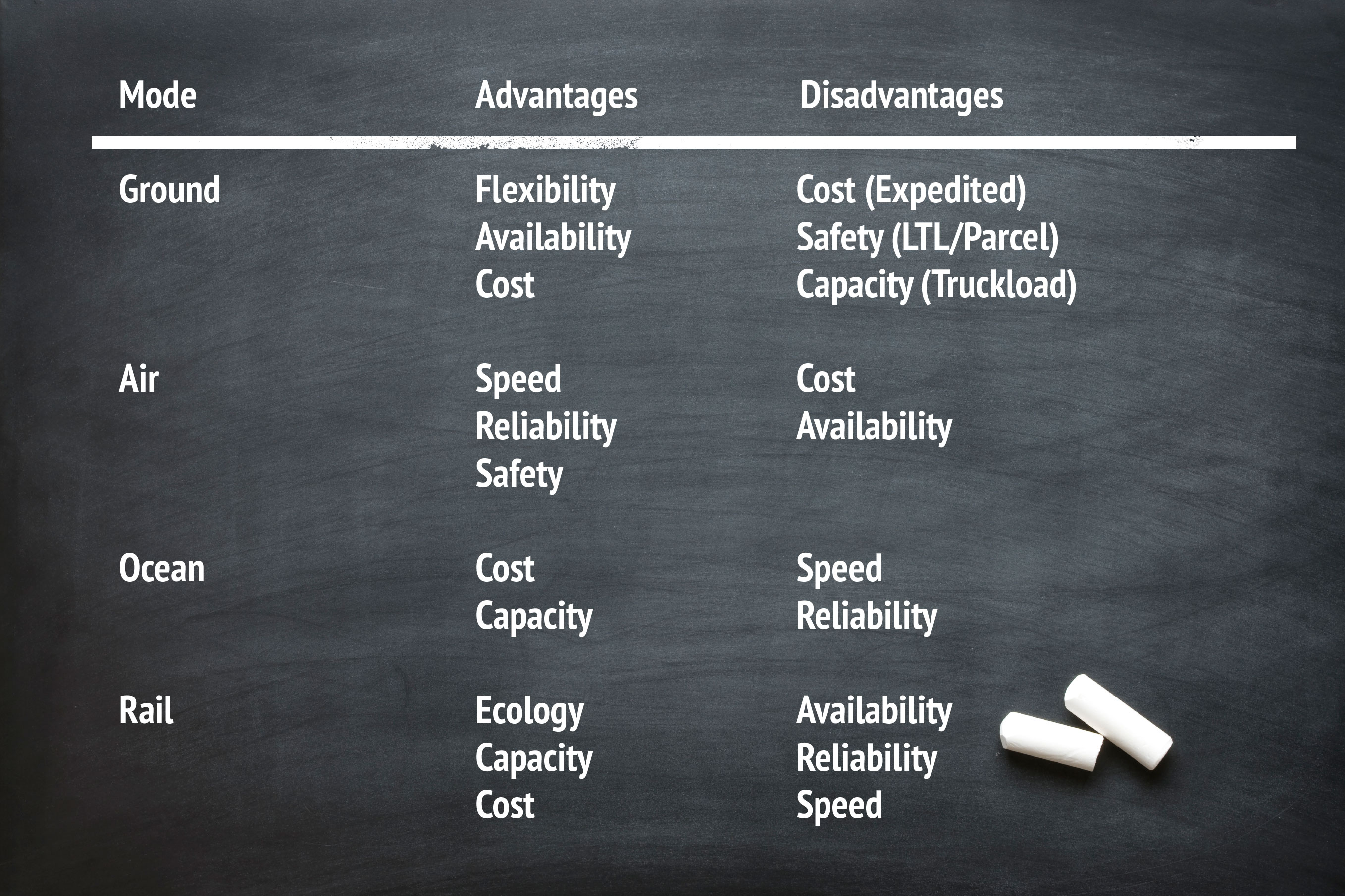
With the fall football season just around the corner, you should know that the Logistics Plus team is here to help you with your logistics playbook. We have the services and solutions to help you run any logistics play your supply chain demands. If you’re looking to score freight savings and earn extra points with your customers and vendors, here are a few common plays we can help you successfully execute (just click the play you wish to run to get started):
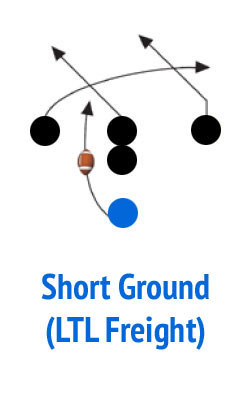
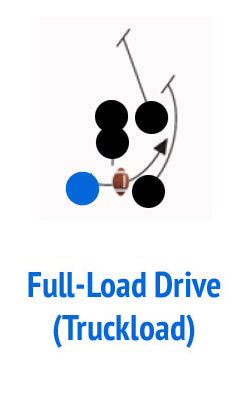
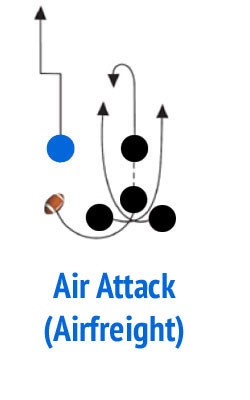
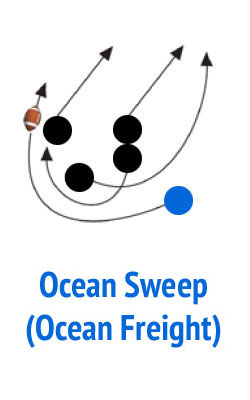
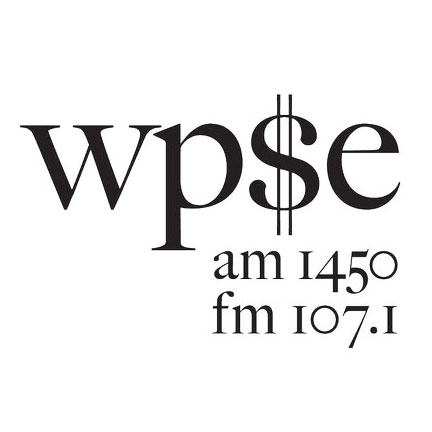
by logisticsplus | Sep 2, 2016 | News
 Logistics Plus media partner, WP$E radio, continues to air short audio clips from Jim Berlin and others within the company as part of its business programming. WP$E AM 1450/FM 107.1 is a commercially licensed radio station serving Erie County, Pennsylvania. The station is owned by the Penn State Board of Trustees, and it is operated by Penn State Behrend, under the direction of professional broadcast staff. In addition to providing a one-stop source for global and financial news, WP$E also airs ongoing commentaries from regional business leaders.
Logistics Plus media partner, WP$E radio, continues to air short audio clips from Jim Berlin and others within the company as part of its business programming. WP$E AM 1450/FM 107.1 is a commercially licensed radio station serving Erie County, Pennsylvania. The station is owned by the Penn State Board of Trustees, and it is operated by Penn State Behrend, under the direction of professional broadcast staff. In addition to providing a one-stop source for global and financial news, WP$E also airs ongoing commentaries from regional business leaders.
Presented here are a few recent audio clips from Jim covering our recent 20th Anniversary announcement.

The only Erie, PA-based Global Logistics

GE – Big company with small business spirit

Truck driver turned entrepreneur

We’re a solutions company – and more
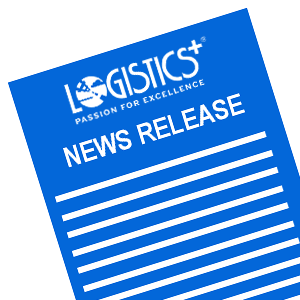
by logisticsplus | Aug 23, 2016 | News
FOR IMMEDIATE RELEASE
Logistics Plus Celebrates Its 20th Anniversary
New online video documents the company’s history, growth and success.
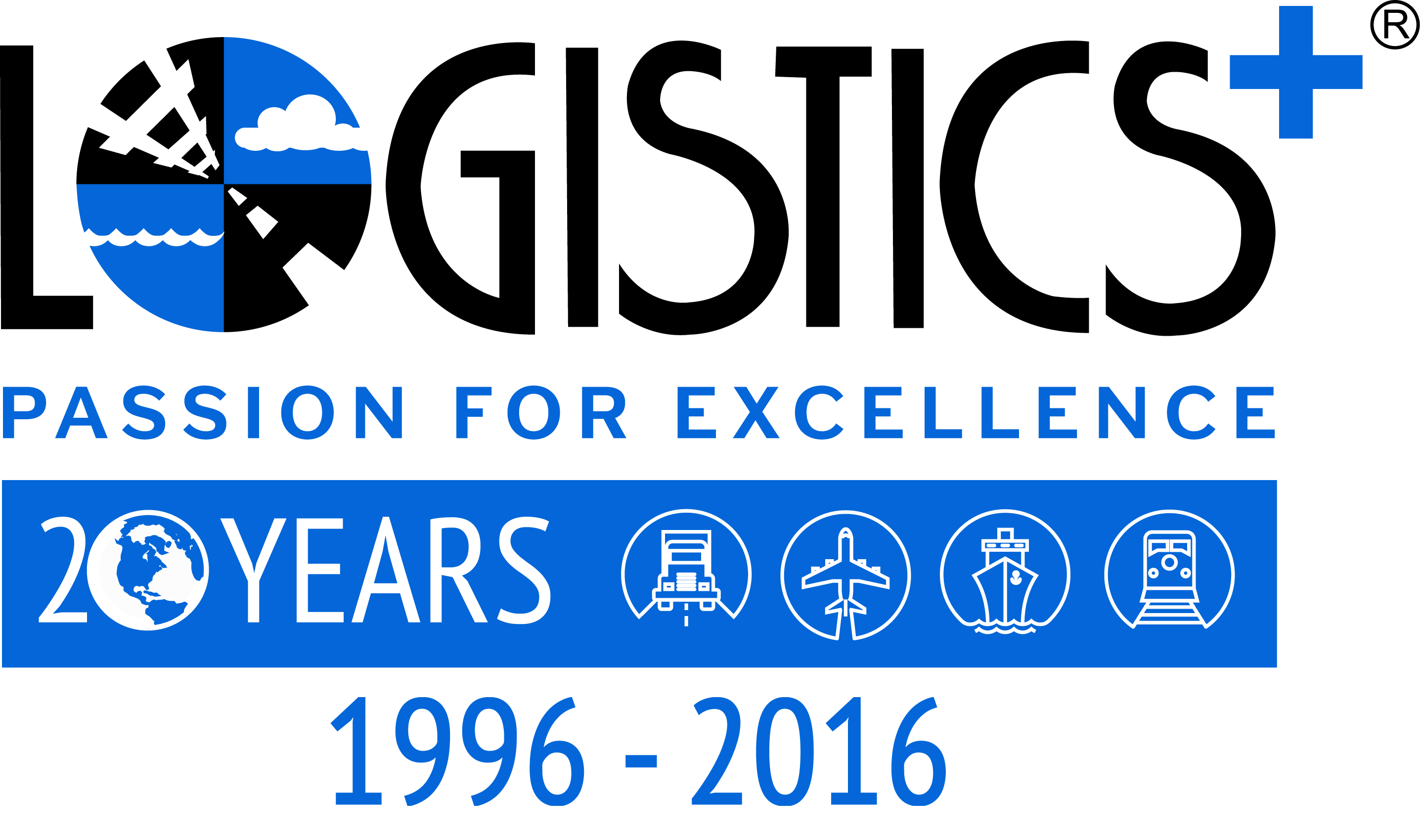 ERIE, Pa. (August 23, 2016) – Logistics Plus Inc., a leading worldwide provider of transportation, logistics and supply chain solutions, is celebrating its 20th anniversary this month. Two decades of growth and experience have transformed Logistics Plus from a three-person operation, supporting the GE Transportation division of General Electric, into a $135 million global solutions company with over 400 employees in 20 countries serving thousands of customers around the world.
ERIE, Pa. (August 23, 2016) – Logistics Plus Inc., a leading worldwide provider of transportation, logistics and supply chain solutions, is celebrating its 20th anniversary this month. Two decades of growth and experience have transformed Logistics Plus from a three-person operation, supporting the GE Transportation division of General Electric, into a $135 million global solutions company with over 400 employees in 20 countries serving thousands of customers around the world.
Company milestones:
- 1996: Founded with a one-year, $120,000 purchase order to manage inbound logistics for GE Transportation
- 1997: Recognized as a GE six-sigma best practice by Jack Welch
- 1997: Expands into Mexico, Czech Republic, Poland and Russia
- 1999: Adds new clients and diversifies into other industries
- 1999: Global expansion continues with new offices in India, China, and Indonesia
- 2003: Company purchases and renovates historic Union Station in Erie, Pa. and makes it its global headquarters
- 2004: Receives Pennsylvania Governor’s Export Excellence Award
- 2004: Jim Berlin named an EY Regional Entrepreneur of the Year
- 2007: Receives Inner City 100 and Wall Street Journal Top Small Workplace Finalist Awards
- 2011: Acquires Horizon Logistics, expanding global freight forwarding capabilities
- 2014: Named Employer of the Year (non-manufacturing) by the DevelopErieeconomic agency
- 2015: Named a top 50 freight brokerage firm by Transport Topics magazine
- 2015: Named a Great Supply Chain Partner by SupplyChainBrain magazine
- 2016: Receives SDCE 100 award from Supply & Demand Chain Executive magazine for top supply chain project
- 2016: Selected by Amazon® for its third-party Solutions Provider Network (SPN)
- 2016: Expanded services for the solar, aviation and pharmaceutical industries propel additional company growth
- 2016: Company celebrates its 20th anniversary!
“I am so proud of what our team has accomplished over the past 20 years. We’ve done a lot of cool things over the years, transporting everything from locomotives to solar panels. We have a lot of satisfied customers, both big and small, and we have a lot of pride in the work we do here,” said Jim Berlin, founder and CEO of Logistics Plus talking about the company’s success. “The ‘plus’ in Logistics Plus represents all of the extra things we do to help our customers be successful. Our slogan is ‘passion for excellence’ because of our drive to find ways of doing things better. The only plan we’ve ever had was to keep growing, take care of our customers, and try and figure things out as they come. We’re not your typical logistics company and, as goofy as it seems, it’s worked well for us. We’ve had 20 years of consecutive growth, and we’ve been profitable every single year. Logistics is in our DNA.”
To commemorate its 20th anniversary, and as a thank you to its customers, vendors and employees, Logistics Plus has released a new, online video in which employees discuss the company’s early years, rapid growth, and prospects for the future. The video can be viewed online at www.logisticsplus.com/20years (or by clicking below).
About Logistics Plus Inc.
Logistics Plus Inc. provides freight transportation, warehousing, global logistics, and supply chain management solutions through a worldwide network of talented and caring professionals. Founded in Erie, PA by local entrepreneur, Jim Berlin, 20 years ago, Logistics Plus is a fast-growing and award-winning transportation and logistics company. With a strong passion for excellence, its 400+ employees put the “Plus” in logistics by doing the big things properly, and the countless little things, that together ensure complete customer satisfaction and success.
The Logistics Plus® network includes offices located in Erie, PA; Alma, AR; Little Rock, AR; Los Angeles, CA; Riverside, CA; San Francisco, CA; Visalia, CA; Atlanta, GA; Chicago, IL; Detroit, MI; Kansas City, MO; Charlotte, NC; Lexington, NC; Buffalo, NY; Cleveland, OH; Charleston, SC; Greenville, SC; Nashville, TN; Dallas, TX; Fort Worth, TX; Houston, TX; Laredo, TX; Madison, WI; Bahrain; Belgium; Canada; Chile; China; Colombia; Egypt; France; Germany; India; Indonesia; Kazakhstan; Libya; Mexico; Poland; Saudi Arabia; Turkey; and UAE; with additional agents around the world. For more information, visit www.logisticsplus.com or follow @LogisticsPlus on Twitter.
Media Contact:
Scott G. Frederick
Vice President, Marketing
Logistics Plus Inc.
(814) 240-6881
[email protected]
Click image below to download the Logistics Plus logo:


 This week is National Truck Driver Appreciation Week (NTDAW) – a time when America honors all professional truck drivers for their hard work and commitment in tackling one of our economy’s most demanding and important jobs.
This week is National Truck Driver Appreciation Week (NTDAW) – a time when America honors all professional truck drivers for their hard work and commitment in tackling one of our economy’s most demanding and important jobs.












 Logistics Plus media partner, WP$E radio, continues to air short audio clips from
Logistics Plus media partner, WP$E radio, continues to air short audio clips from 
 ERIE, Pa. (August 23, 2016) – Logistics Plus Inc., a leading worldwide provider of transportation, logistics and supply chain solutions, is celebrating its 20th anniversary this month. Two decades of growth and experience have transformed Logistics Plus from a three-person operation, supporting the GE Transportation division of General Electric, into a $135 million global solutions company with over 400 employees in 20 countries serving thousands of customers around the world.
ERIE, Pa. (August 23, 2016) – Logistics Plus Inc., a leading worldwide provider of transportation, logistics and supply chain solutions, is celebrating its 20th anniversary this month. Two decades of growth and experience have transformed Logistics Plus from a three-person operation, supporting the GE Transportation division of General Electric, into a $135 million global solutions company with over 400 employees in 20 countries serving thousands of customers around the world.